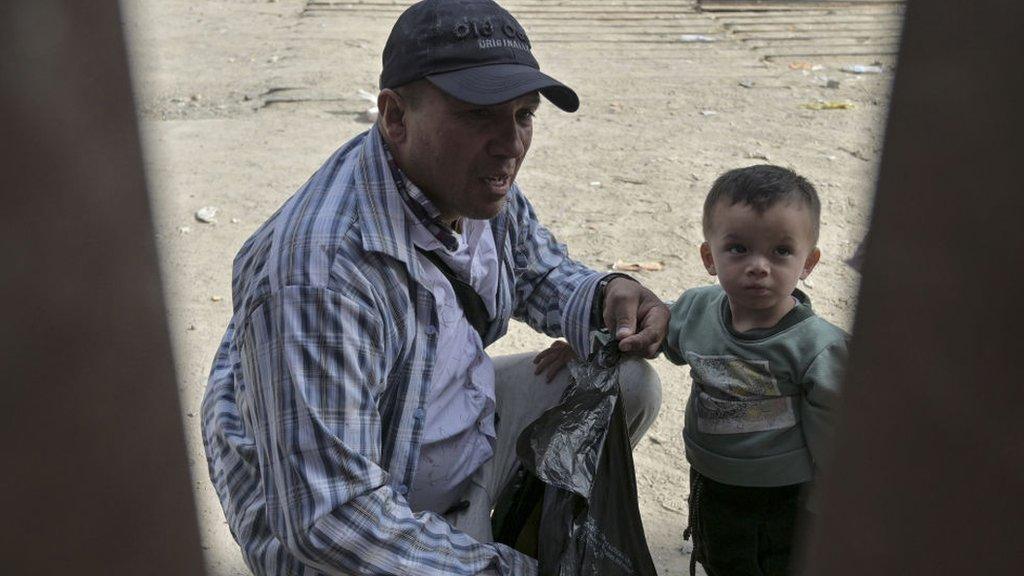Biden to give legal status to 500,000 undocumented spouses
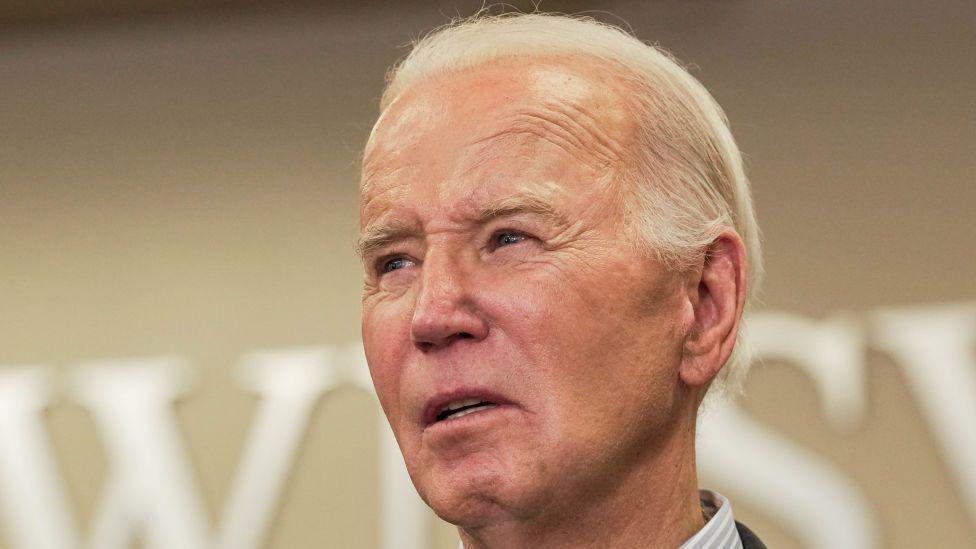
Despite withering criticism, President Joe Biden has vowed to make the US immigration system "more just"
- Published
President Joe Biden has announced a new policy that would protect hundreds of thousands of undocumented spouses of US citizens from deportation, according to administration officials.
The issue of immigration has proven an election-year headache for Mr Biden, who recently issued a sweeping executive action to curb record migrant arrivals at the US-Mexico border.
The new policy will apply to those who have been in the country for at least 10 years and will allow them to work in the US legally.
The White House believes more than 500,000 spouses will be eligible.
Speaking at an event at the White House on Tuesday, Mr Biden said the move would help the US immigration system become less "unfair" and "unjust" for the benefit of immigrants, married couples - and all Americans.
Polls show that the immigration is a primary concern for many voters ahead of the presidential poll in November.
The White House also believes the new spouses policy will benefit 50,000 young people under 21 whose parent is married to an American citizen.
It marks the most significant relief programme for undocumented migrants already in the US since the Obama administration announced the Deferred Action for Childhood Arrivals, or Daca, in 2012.
"The action I'm announcing today will go into effect later this summer," Mr Biden said at the White House.
"The steps I'm taking today are overwhelmingly supported by the American people, despite what the other team says," he added, a reference to Republicans.
The White House announcement came as the US marked the 12th anniversary of Daca, which shielded over 530,000 migrants who came to the US as children - known as Dreamers - from deportation.
On Monday, senior administration officials said that undocumented spouses of US citizens would qualify if they had lived in the country for 10 years and been married as of 17 June.
Those who qualify will have three years to apply for permanent residency and will be eligible for a three-year work permit.
On average, the White House believes that those eligible for the process have been in the US for 23 years. A majority will have been born in Mexico.
They will be "paroled in place" and allowed to remain in the US while their status is changed.
NumbersUSA, an organisation that advocates for tighter immigration controls, slammed the new policy as “unconscionable”.
The organisation’s chief executive, James Massa, said in a statement: “Rather than stopping the worst border crisis in history, President Biden has overreached his executive authority to use an unconstitutional process, circumventing voters and their elected representatives in Congress, to send a message that amnesty is available to those who enter illegally into the United States."
Alex Cuic, an immigration lawyer and professor at Case Western Reserve University in Ohio, told the BBC that while the action affected a "narrow group", it marked a "start" for a segment of the US immigrant population that historically would face complications normalising their status in the country, even when eligible.
"A good majority of them [would have] to leave the country in order to come back lawfully," he said. "It's like they physically enter the US, but their immigration 'soul' doesn't come with them."
By allowing beneficiaries to parole in place, Mr Cuic added, officials "kill off the need to separate families" when one spouse needs to leave the country to apply for lawful permanent residence.
The application process is likely to be open by the end of summer, a senior administration official said on Monday.
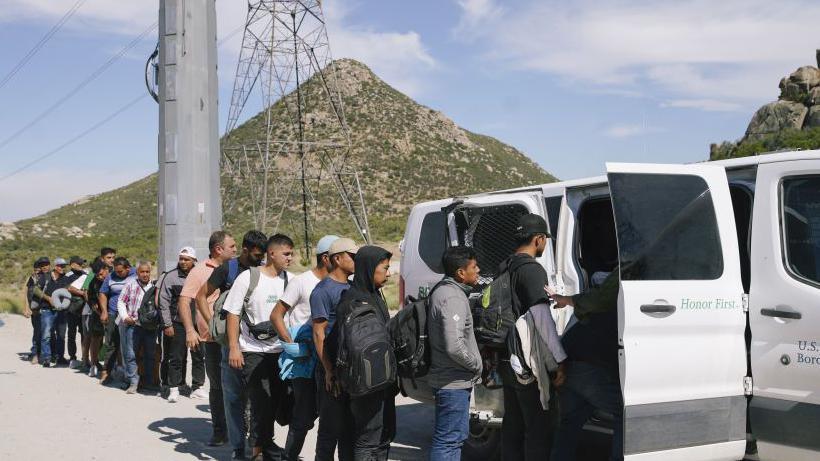
Immigration has emerged as a primary concern for many US voters ahead of the November election.
The White House is also planning to ease and speed up the visa process for highly skilled undocumented immigrants who have received degrees from US universities or who have received a job offer in their field, including Dreamers.
Mr Biden's announcement comes two weeks after he issued a sweeping executive action that allows US officials to quickly remove migrants entering the US illegally without processing their asylum requests.
That will happen once a daily threshold is met and the border is "overwhelmed", the White House said in a statement.
The American Civil Liberties Union, or ACLU, sued the Biden administration last week, arguing that it violated US immigration law with the action.
At the time of the announcement, Mr Biden urged those who consider the measure "too strict" to "be patient".
"[In] the weeks ahead, I will speak to how we can make our immigration system more fair and just," he said.
Aaron Reichlin-Melnick, policy director at the American Immigration Council, said that while the two announcements "don't intersect with each other at all", the more recent action may help the administration "get some positive headlines after the pushback" they received over the border announcement.
"The Biden administration has been receiving a lot of flak from people saying that their focus has all been on new arrivals, when there are so many long-term undocumented immigrants stuck trying to navigate our complicated immigration system," he added.
"I think the actions you've seen the president taking over the last few weeks really go towards addressing both those concerns," Mr Reichlin-Melnick added.
- Published5 June 2024
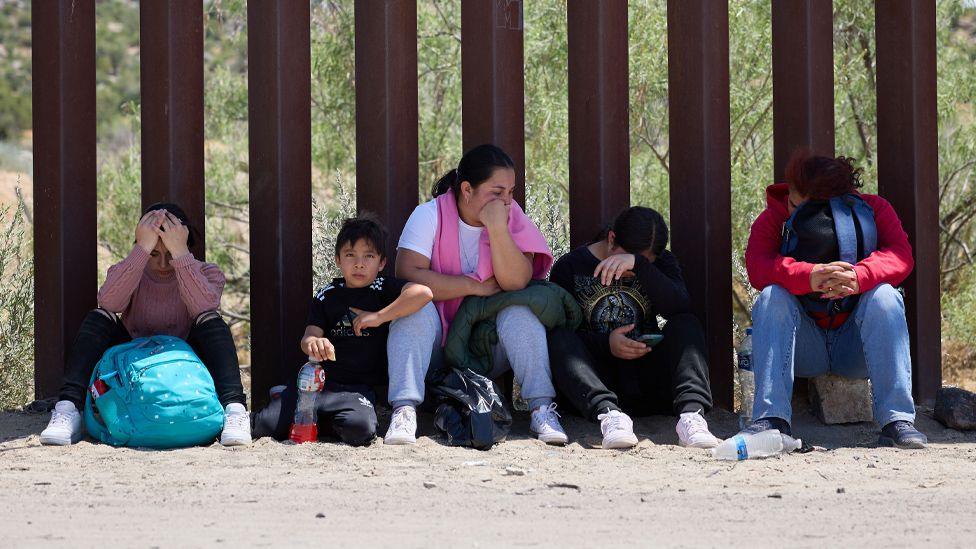
- Published5 June 2024
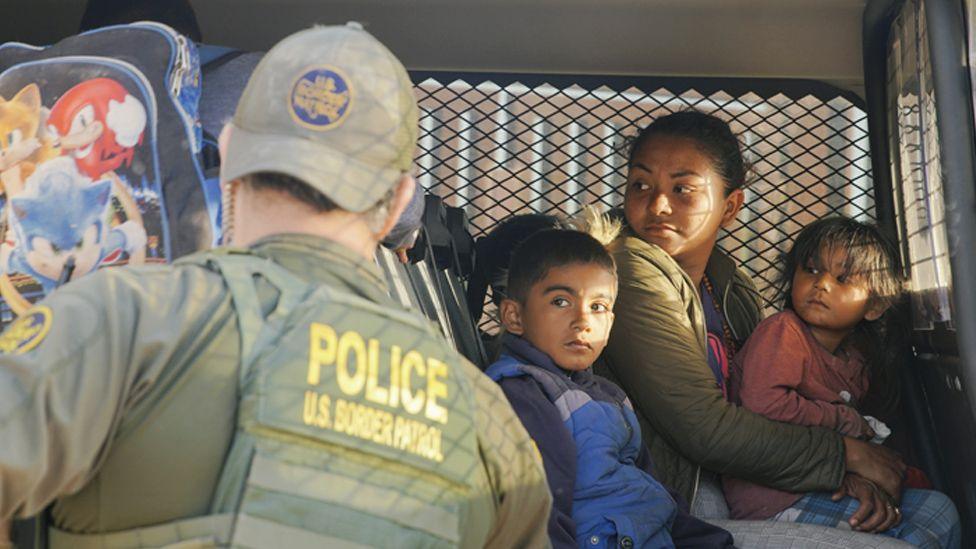
- Published4 June 2024
